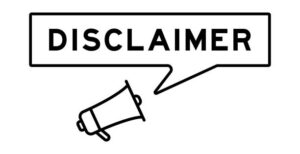It could seem intimidating to write legal policies for your WordPress website. But, if you omit these crucial sections, you risk getting into trouble and harming the reputation of your company. You can build policies for your WordPress site using tools if you can’t afford to engage a legal expert. By doing this, you may make sure that you’re shielded from complaints or claims made by unhappy customers.
We’ll talk about the significance of establishing legal guidelines for your WordPress website in this piece. After that, we’ll examine several crucial policies and demonstrate how to draft them. Now let’s get going!
Why It’s Important to Create Legal Policies for Your WordPress Website
Legal policies are essential for any e-commerce website. These pages include vital details regarding your company’s operations, like the how you gather and handle client data. You must also specify your conditions of use if you sell goods or provide services. These are rules that customers must follow when using your product or website.
These legal guidelines can assist in reducing the liability concerns facing your internet company. Provided that the problem is covered by your policies, a customer cannot sue you for damages or seek compensation if they are dissatisfied with your offerings.
Furthermore, you have a legal need to notify your website’s visitors if you gather user data on WordPress. You may find yourself in trouble if you break rules like the General Data Protection Regulation (GDPR) and the California Consumer Privacy Act (CCPA).
You must make sure that these legal policies are updated on a regular basis after you post them on your website. You might need to include a new clause in your terms and conditions, for instance, if you start providing a different kind of service.
3 Essential Legal Policies for WordPress Websites
After learning how crucial it is to create documents for your small business, let’s examine some crucial guidelines for your WordPress website.
-
Privacy Policy:

If you manage a WordPress website, you most likely gather user data. You may, for instance, have contact forms where people are required to enter their email addresses.
You may also use third-party programs, such as Google Analytics to collect information about the location and language of your site users. You may enhance your marketing plan and deliver targeted advertising with the help of this information. You can describe the kinds of data you gather and how you use it in a privacy policy.
Although you must have this page for legal purposes, it can also help you build credibility with your clients. As a result, you should speak clearly and succinctly and make sure you cover everything.
Fortunately, you can build this crucial page with a legal policy generator for WordPress websites. You won’t have to worry about forgetting anything this way. All you have to do is start with a generic template for a privacy policy and modify it to fit your company’s procedures.
You only need to list the services you use, for instance, if the template has a section concerning collecting data from third parties. Ensuring that your privacy policy is easily accessible is also crucial. You should provide a link to it in both the footer and the main navigation menu.
-
Disclaimer

A disclaimer is a legal declaration that releases you from responsibility. There are various kinds of disclaimers, and your WordPress website can require more than one of them.
For example, you must have an affiliate disclaimer if you use affiliate links on your website. This ought to sum up how you and the brands you support interact. Additionally, you must disclose to users that when they buy a product through one of your affiliate links, you get paid.
If you run a blog, you should let readers know that you are not liable for any choices they make after reading an item on your website. This is especially crucial if you offer financial guidance or suggest locations for extreme sports or outdoor attractions. In this manner, a user cannot sue you in the event that they invest improperly or get hurt.
Once more, you can create your disclaimer by using an online policy generator. There should be templates available for a variety of uses, such as professional liability, copyright, and no-responsibility disclaimers.
-
Cookie Policy

A cookie policy is a statement that lets visitors know that cookies are used on your website. Cookies are little files that are used to gather and store personal data, like your email address and login.
Websites are required by data legislation such as the GDPR to notify users of the types of data they collect and provide them with the ability to modify their preferences. This page and your privacy policy are not the same. One of the first things visitors to your website should see is the cookie notification.
Links to your cookie policy should appear in a cookie pop-up or banner. This policy should include :
- a precise explanation of cookies and their functions.
- The kinds of cookies you use (first-party and third-party, for example) and their purposes.
- Options for managing cookies for your users.
Users should have the option to accept or reject cookies, above all. To make sure the data complies with your data practices, you can alter it using a cookie policy generator.
Conclusion
You must ensure that you are shielded from liabilities if you operate a WordPress website. Users may, for example, accuse you of misappropriating data or place the blame for an injury on your company. To counter these accusations, you may swiftly draft legal documents with the help of an online policy generator.
Here are the top Three legal guidelines for your WordPress website, to summarize:
- Privacy Policy
- Disclaimer
- Cookie Policy
Regarding drafting legal policies for your WordPress website, do you have any questions? Tell us in the space provided for comments below!










